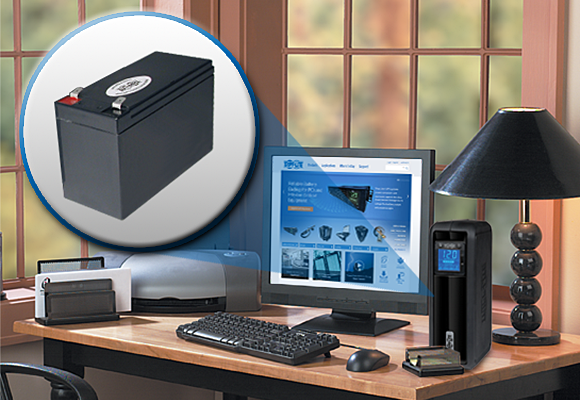Content provided by Tripp Lite.
Recently, a customer emailed me asking for the life expectancy of UPS Replacement Batteries. While the generally accepted range is 3 to 5 years, this answer is a ball park estimate because battery life depends on a number of factors. Let’s briefly go over the main ones:

1. Ambient Temperature: A battery’s rated capacity is based upon an ambient temperature of 25°C (77°F). If a battery is operated at higher temperatures, its usable life will be shortened. Ambient temperature may not be a problem for UPS batteries used in air-conditioned data centers, but it could be a problem in industrial locations, unprotected environments or hot climates.
2. Number of Discharges: Have you been noticing that your UPS battery power isn’t lasting as long as it did when you first bought it? That’s because the number and length of battery discharges affect a battery’s ability to deliver power. The more discharges, the deeper the discharges, the shorter the battery’s life will be.
3. Age: Batteries are electrochemical energy storage devices that convert chemical energy into the electrical energy that UPS’s need to operate. But, even with battery charging, over time the chemicals in the battery deplete, which cause the battery to deliver less power and for shorter periods of time for a given load. Hence, no matter how carefully you use a battery, at some point, it’s time for battery “retirement.”
4. Load Sizing: If a battery is undersized for a load, battery run time and life expectancy will be shortened. You can verify your sizing with the Load and Runtime Calculator to ensure you have a properly sized battery bank for your current load.
5. Maintenance: Most UPSs use sealed, valve-regulated, lead-acid (SVLRA) batteries, which are commonly called “maintenance-free.” But the maintenance-free feature really refers to the fact that they are sealed and don’t require the addition of electrolyte, as would flooded, wet cell batteries that are used in very large UPS systems. But even maintenance-free batteries need to be inspected to see whether there is corrosion buildup or leaks, and the terminal connections are tight. Without any kind of maintenance, your batteries often will have a shorter life.
Now that I’ve gone through the main things that affect battery life, let me go back to the customer’s question. Even if 3 to 5 years is the generally accepted range of a battery’s usable life, it would still depend on your operating environment and how you used the batteries. So, the best way you can ensure your batteries have enough juice to last your next power outage is with battery monitoring and inspection. Most UPS systems have a battery test feature on the front of the unit. If your UPS is lasting for less time on battery power than it used to, then you may need to consider that the battery is nearing the end of its usable life and needs to be replaced.


.png?width=58&height=58&name=X_logo_2023_(white).png)
